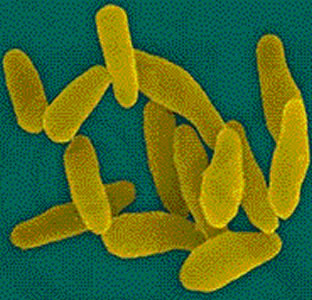Harvard microbiologist John Collier speaks April 15 at UTSA on diphtheria toxin

Dipheria

Dipheria
(April 14, 2011)--The UTSA South Texas Center for Emerging Infectious Diseases in the UTSA College of Sciences will present "An Ode to the Study of Diphtheria," a technical lecture featuring R. John Collier, professor of microbiology and molecular genetics at Harvard Medical School. Free and open to the public, the lecture sponsored by the Ewing Halsell Foundation, will be 9-10 a.m., Friday, April 15 in the Biotechnology, Sciences and Engineering Multifunction Room (2.102) on the UTSA Main Campus.
The bacterium Corynebacterium diphtheria causes diphtheria, a disease now rare in the United States because of mandatory vaccination, but once was extremely common. The bacterium is highly contagious, and the disease has a relatively high fatality rate because the toxin produced by the bacteria can cause systemic and lethal effects.
Collier has been studying diphtheria toxin for nearly 50 years, and his research has been seminal in the understanding of how bacterial toxins enter host cells and cause lethal effects. The seminar will provide a retrospective analysis of his influential studies of diphtheria toxin action.
Collier is one of the most preeminent researchers in bacterial pathogenesis. His four-decade career began when he earned his Ph.D. in biology at Harvard University in 1964. Upon completing post-doctoral studies in biology at the University of Geneva (Switzerland) Molecular Biology Institute, Collier joined the faculty at UCLA, where he served in numerous capacities from 1966 to 1984.
In 1984, Collier joined the faculty at Harvard Medical School. Five years later, he was named the Maude and Lillian Presley Professor of Microbiology and Molecular Genetics. In 1991, he was elected to the National Academy of Sciences.
More recently, he served as a consultant to various biomedical companies such as Cetus Corporation (1982-1984), Virus Research Institute (1994-1998), AVANT Immunotherapeutics (1998-2000) and CombinatoRx Inc. (2005-2008). In 2001, he co-founded PharmAthene Inc., an Anapolis-based biodefense company.
Events
Join UTSA Libraries and Museums to learn more about the publishing discounts available for UTSA researchers. Current agreements include Elsevier, Cambridge University Press, Springer Open, and more. Please bring your questions and feedback for the library as we continue to pursue partnerships with publishers to reduce costs for our researchers.
Virtual EventYou have probably heard of the term “fair use,” but how comfortable do you feel with navigating U.S. copyright law? For instance, did you know you are not required to register your copyrighted work with the U.S. Copyright Office? Join us for a hands-on workshop about the basics of copyright, both in education and as a researcher. We’ll dispel some common copyright myths and differences between copyright law and other intellectual property law and teach you how to apply a Fair Use checklist to your scholarly work.
Virtual EventDon’t mind the writing but hate formatting citations and bibliographies? Working on your thesis or dissertation, or even a long paper this semester? Citation managers such as Zotero® can help you store and organize the citations you find during your research. Take part in this session about using Zotero®.
Virtual EventIn this hands-on workshop, participants will learn to setup an EndNote library, save references and PDFs, and automatically create and edit a bibliography. Attendees are encouraged, but not required, to have EndNote already installed on a personal computer.
Virtual EventFeaturing UTSA alumni John Seesholtz and Melissa Lubecke Serabia. The program will be focused on Latin American Art Song. Free and open to the public.
UTSA Recital HallPressbooks is an open educational resource authoring platform for simple book publishing. Upon completion of the Pressbooks Basic workshop attendees will be able to: create a new book, clone an existing book, remix chapters from a variety of different Creative Commons licensed books, add media and other content to a book, export a book in a wide range of formats.
Virtual EventJoin Community-Engaged Digital Scholarship Hub (CEDISH) and the Digital Humanities Student Association (DHSO) at UTSA for an enlightening workshop on "Responsible Datasets in Context," sponsored by the Mozilla Foundation. Participants will gain insights into creating contextually rich datasets, developing data essays, and crafting effective visualizations.
Assembly Room, 4th Floor (4.04.22), John Peace Library

